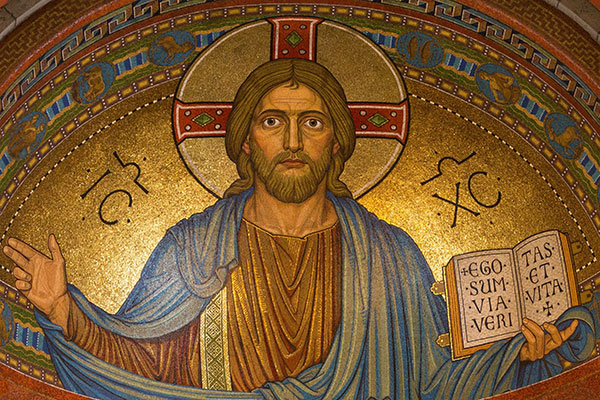Great change is normal
“By identifying the new learning with heresy, you make orthodoxy synonymous with ignorance.”—Erasmus

“By identifying the new learning with heresy, you make orthodoxy synonymous with ignorance.”—Erasmus
Reflections by Michelle Curtis, CHI intern
My church has an “old ladies” Sunday school class, and though I’m more than a half-century younger than them, I really enjoy their class! One recent Sunday we discussed how drastically the church has changed since their childhood. Many of these women have attended this suburban Mennonite church their whole lives, and they were reflecting that nearly everything has changed. So I asked them: In the midst of all this change in the church, what has remained? What’s still the same that we need to hold onto moving forward?
One woman responded immediately: “Jesus!” There was a pause as the group nodded in agreement. Then another woman added, “And the basic message of the Gospel, that Jesus came and died and rose again to bring us into right relationship with God.” That’s it. These women told me the only things that make the church recognizable from the church of their childhood 80 years ago are the centrality of Jesus and the good news that Jesus takes away our sin and restores our relationship with God.

Whatever else changes, Christ and his work does not.
At first, I was appalled. That’s a lot of change! It’s scary to think about how much may change in my lifetime if this trend continues. But as I let their words sink in, I found myself comforted. Great change is normal. As long as we hold fast to the good news of salvation in Jesus, we do not need to panic when everything else about the church, from the music to the “dress code” to denominational structure, seems to be shifting.
The Reformation was also an era of immense change, in both church and society. When I first heard of Erasmus, I was intrigued by the story of a reformer of Luther’s era who remained within the Catholic Church. In a time of great change, Erasmus argued for reform in the church and championed new ideas and learning, particularly humanism (an academic movement interested in ancient Greek and Roman thought). Yet he did not reject the orthodox tradition he had inherited. On the contrary, this reformer claimed that holding fast to orthodoxy must not lead us to reject new ideas and learning outright. We should always be learning new things with our God-created minds.
Erasmus reminds me, just like the women in my Sunday school class did, that I do not need to be so afraid of the rapid changes in our society and the church. New learning can threaten our familiar ways of doing things or familiar ways of relating to God. But following Jesus requires that we cling to the Gospel and the deep time-tested traditions of Scripture and the creeds while also moving forward to understand what Jesus is doing in our present context. Though it can be intimidating and difficult work, both Erasmus and the women encourage me to remain centered on Jesus and to remain open to the new work God may be doing in our own context. This is the challenge we face as part of a living tradition.
(Join us each Thursday for a fresh look at a quote from the Reformation era. Sign up via our e-newsletter (in the box at the right) or through our RSS feed (above), or follow us on Facebook for the next year as we celebrate 500 years of Reformation.)
More on Erasmus in Christian History magazine issue #115 and especially in The Man Who Yielded to No One by David C. Fink.
Want more Christian History? Sign up for our Daily e-mail on our "Today in Christian History" page. Many of the stories we'll feature in 2017 will be related to the Reformation.



